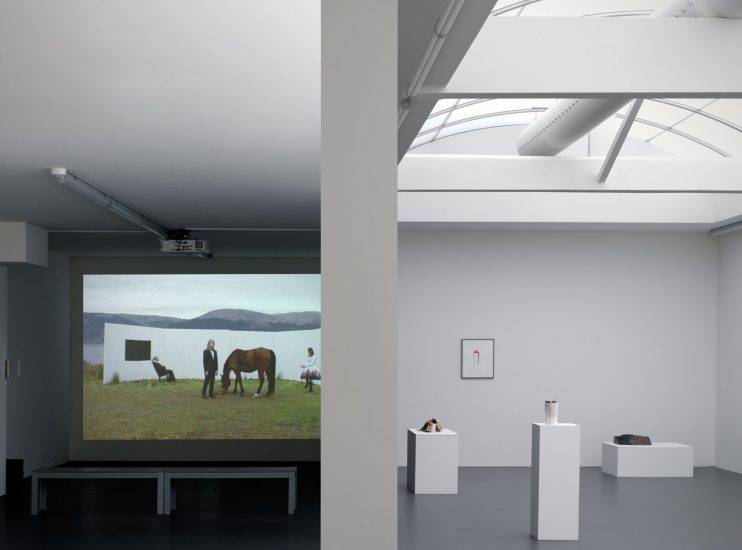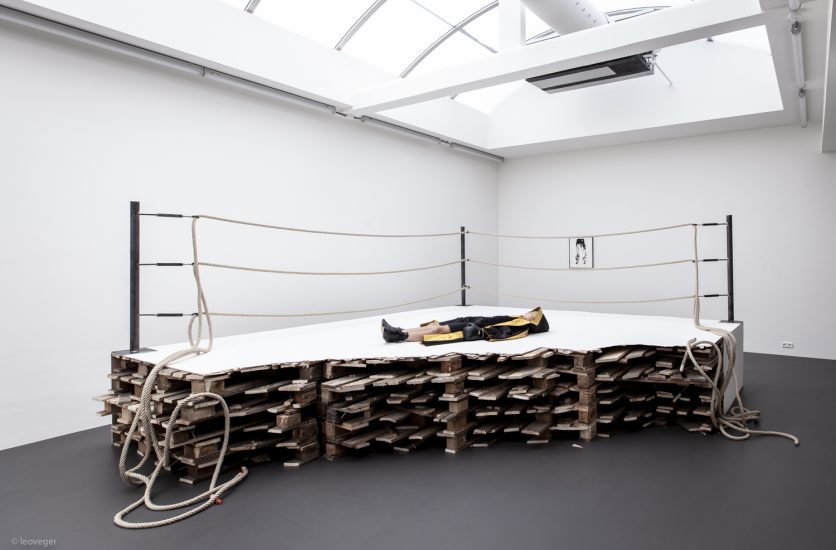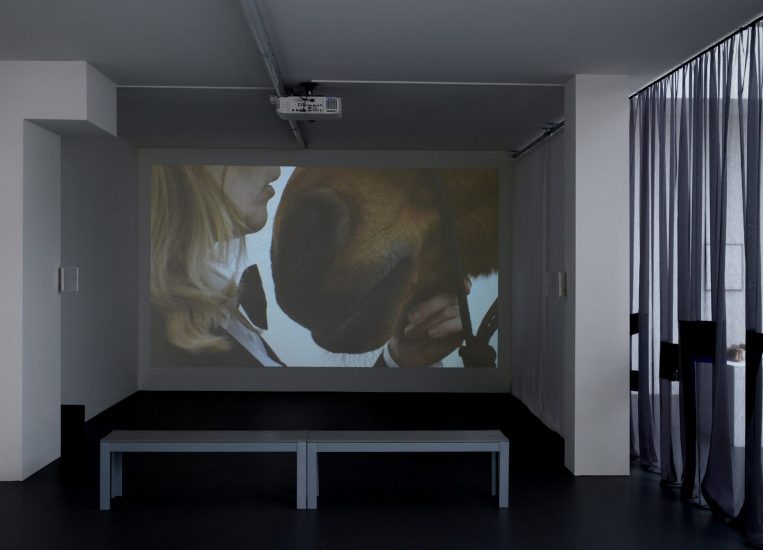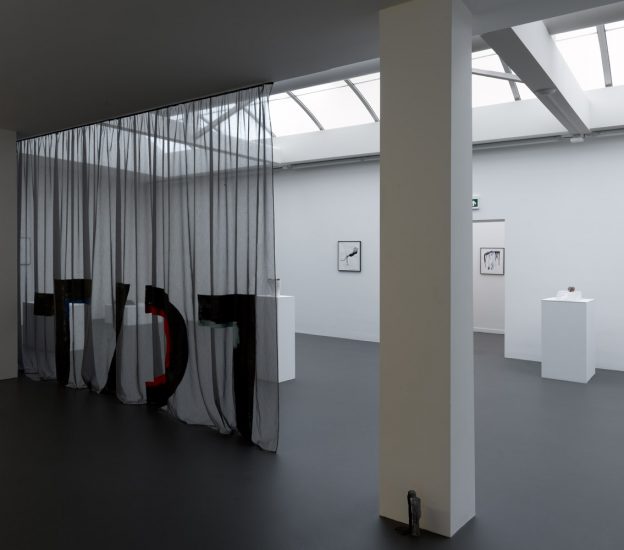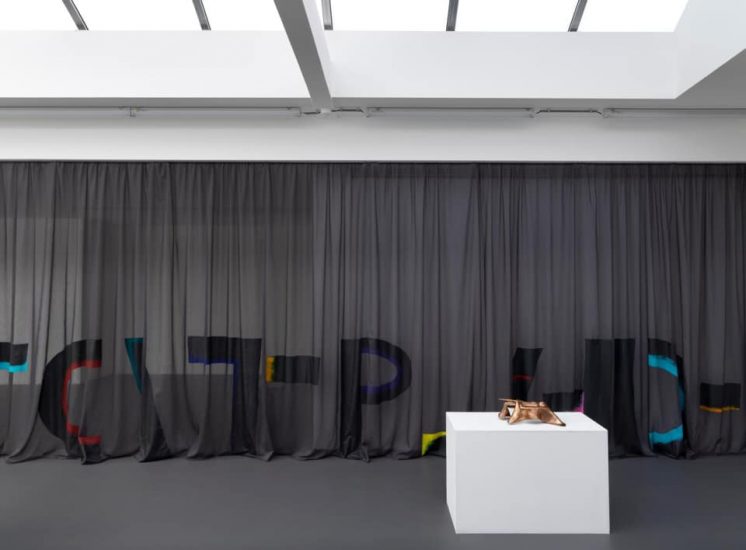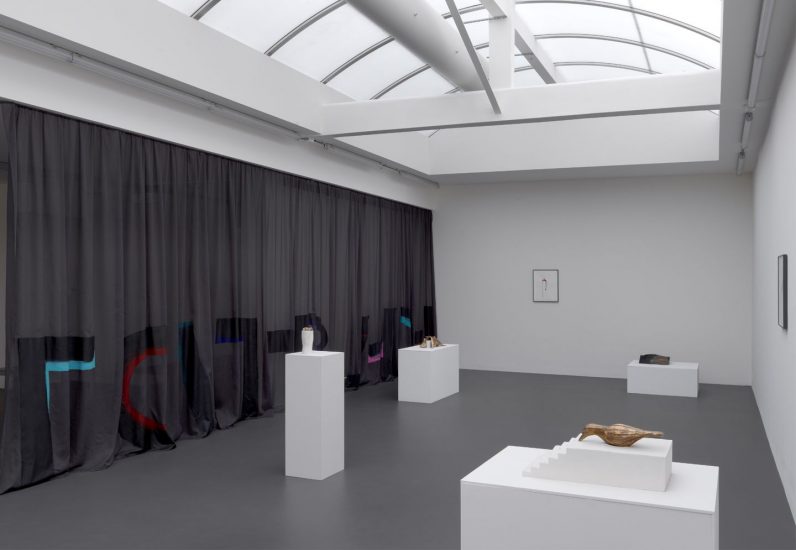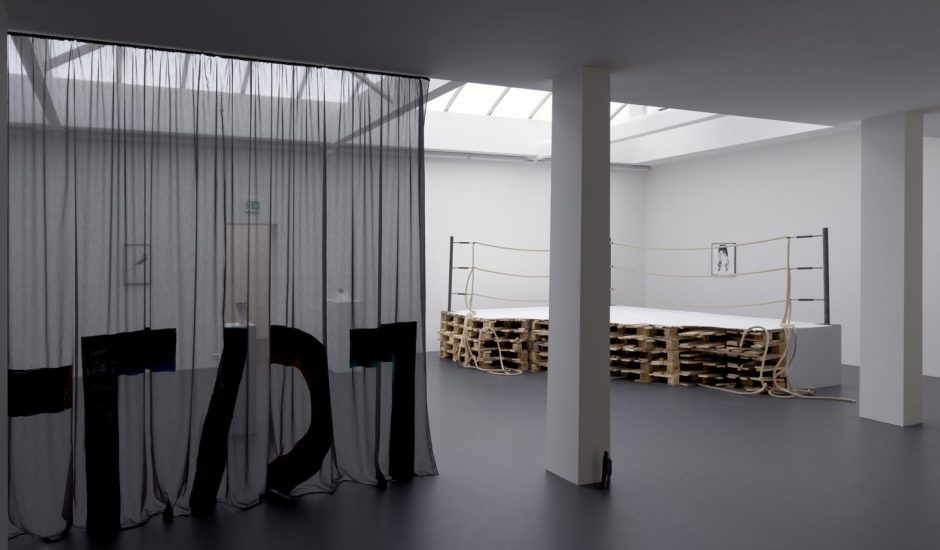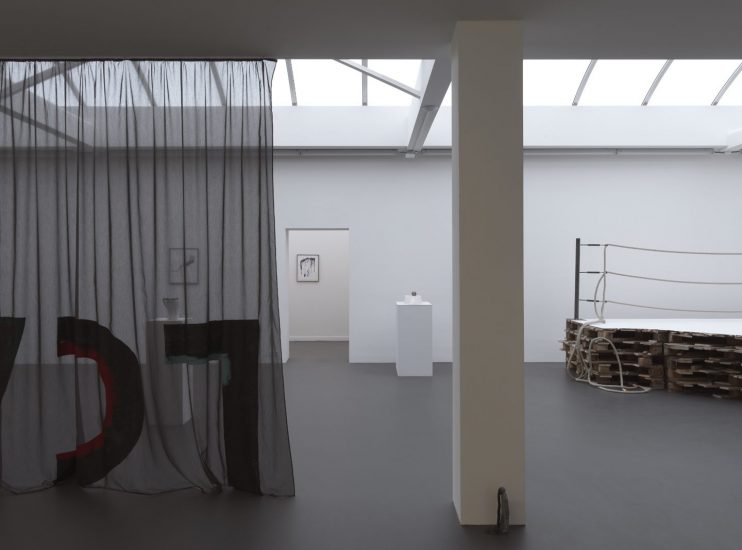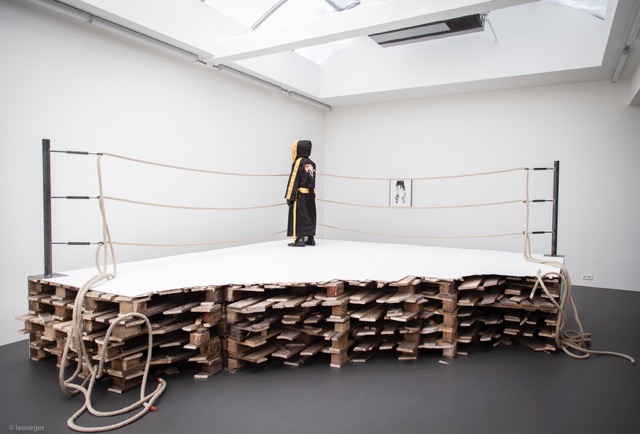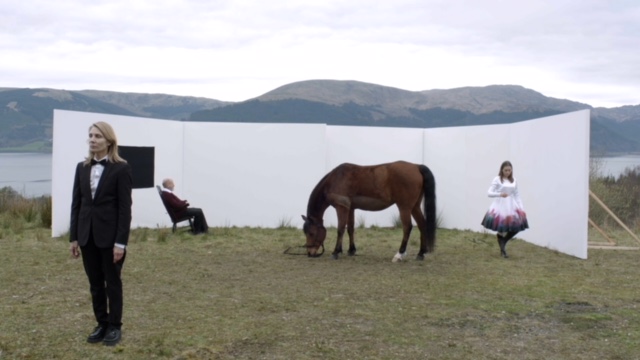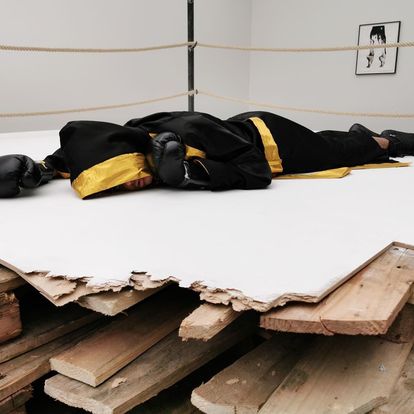Grace Schwindt
In Silence
ROZENSTRAAT – a rose is a rose is a rose
Grace Schwindt – In Silence
19 May – 27 July 2019
The practice of Grace Schwindt is primarily focused on performance and film as well as sculptures and drawings. Many of her works explore aspects of historical events with an emphasis on social relations. It is however never obvious where she draws the line between fiction and non-fiction. Schwindt aims to clear institutional spaces from meaning and to de-construct narrative structures, while acknowledging that spaces will always stay loaded with given connotations.
Schwindt’s exhibition at ROZENSTRAAT is formed out of a new body of work and is part of the artist’s ongoing exploration on how public health is perceived and treated in our present days. Her new film Five Surfaces All White (2019) for instance questions the intentions made apparent by the architectural designs and structures of health institutions and their ensuing perceptions of public health.
Just as most of her other works, the film is based on a combination of historical research, personal memories and interviews that the artist had with various people involved with the subject. Pivoting from a base of research that takes in The Socialist Patient Group, a radical 1970s intellectual and political collective from Heidelberg, Germany, as well as Ronald Laing and David Cooper, key groups and exponents of the anti-psychiatrist movement that emerged in the 1960s.
Such groups and exponents supported the view that mental instabilities stem from imposed, dominant social structures and relations and from the consequent lack of safety experienced by the individual. The Socialist Patients Group’s core belief was the need and importance of understanding Illness as a weapon, key to fight oppressive, imposed social structures. These thoughts are closely related to Ronald Laing’s idea that insanity is a perfectly rational adjustment to an insane world. Laing also argues for a more personal and less hierarchical form of therapy in which doctors and patients meet on a personal, more human level; a treatment that is not longer primarily based on medication but on therapy and counselling. The rise of the anti-psychiatrist movement should therefore also be placed within the spirit of its time.
The set of the film is simple and intimate. It consists of five white walls being placed on a hill with beautiful surroundings. Over a duration of 40 minutes, three performers will speak a text and together with a horse carry out a choreography based on personal memories of Schwindt’s grandfather as well as various other people Schwindt interviewed who are in some way affected by mental illness or working within the field of public health. The communication will move from spoken language to song and sounds as well as body language, gestures and gazes engaging the performers including the horse, the five walls and the landscape. The performers in the film don’t necessarily represent people but could also represent times or parts of oneself or intergenerational relationships or even a memory, creating a rather fluid way or storytelling.
Another work that took its starting point from the conversations between the artist and her grandfather is Remembered Positions (2019). This performance-installation consists of a series of positions that the performer takes, each one representing a memory of a position in a story that Schwindt’s grandfather told her about the boxing matches he took as a prisoner of war in Tunisia during the Second World War. In addition to these memories he also spoke about his experience as a soldier, focusing on the soldier’s body from different perspectives and experiences. The personal talks between grandfather and granddaughter are layered with ongoing conversations between Schwindt and different dancers about their experience of wounds and caring for their body in order to perform, all together forming the core of the artist’s latest piece which will premiere at the opening and that will be performed several more times for the duration of the exhibition.
With the exhibition the artist creates an intimate moment of sharing physical and mental wounds as a possibility to create non-oppressive social relations. These themes also resonate in the sculptures and drawings presented. Without picturing specific wounds, the works question what we perceive as normative or healthy bodies within in our current society. Not meeting these standards is a way to resist categorisation as well as a refusal to be functional in a prescribed way. By showing possible alternatives to these current standards a more inclusive community might arise.
Grace Schwindt (1979) is a German artist living and working between Amsterdam and London. Her works are exhibited in numerous institutions in the United Kingdom and internationally, including MARCO in Vigo, The Showroom in London, Badischer Kunstverein in Karlsruhe and Contemporary Art Gallery in Vancouver. Her work has also been on view at the Anren Biennale of 2017, the Istanbul Biennale of 2015, Kunstmuseum St. Gallen in St.Gallen, WIELS in Brussels and Tate Britain in London.
Most recently her performances have been presented at Volksbühne in Berlin, David Roberts Foundation in London, Performatik in Brussels and Playground STUK in Leuven. Upcoming solo-exhibitions and performances include CCA-Glasgow and de Oude Warande in Tilburg (both in 2019). Schwindt is represented by Zeno-X gallery in Antwerp and the exhibition In Silence at ROZENSTRAAT is the artist’s first solo-show in The Netherlands.
The exhibition is generously supported by AFK (Amsterdam Fund for the Arts), Mondriaan Fund, Stichting Stokroos and Cove Park.
